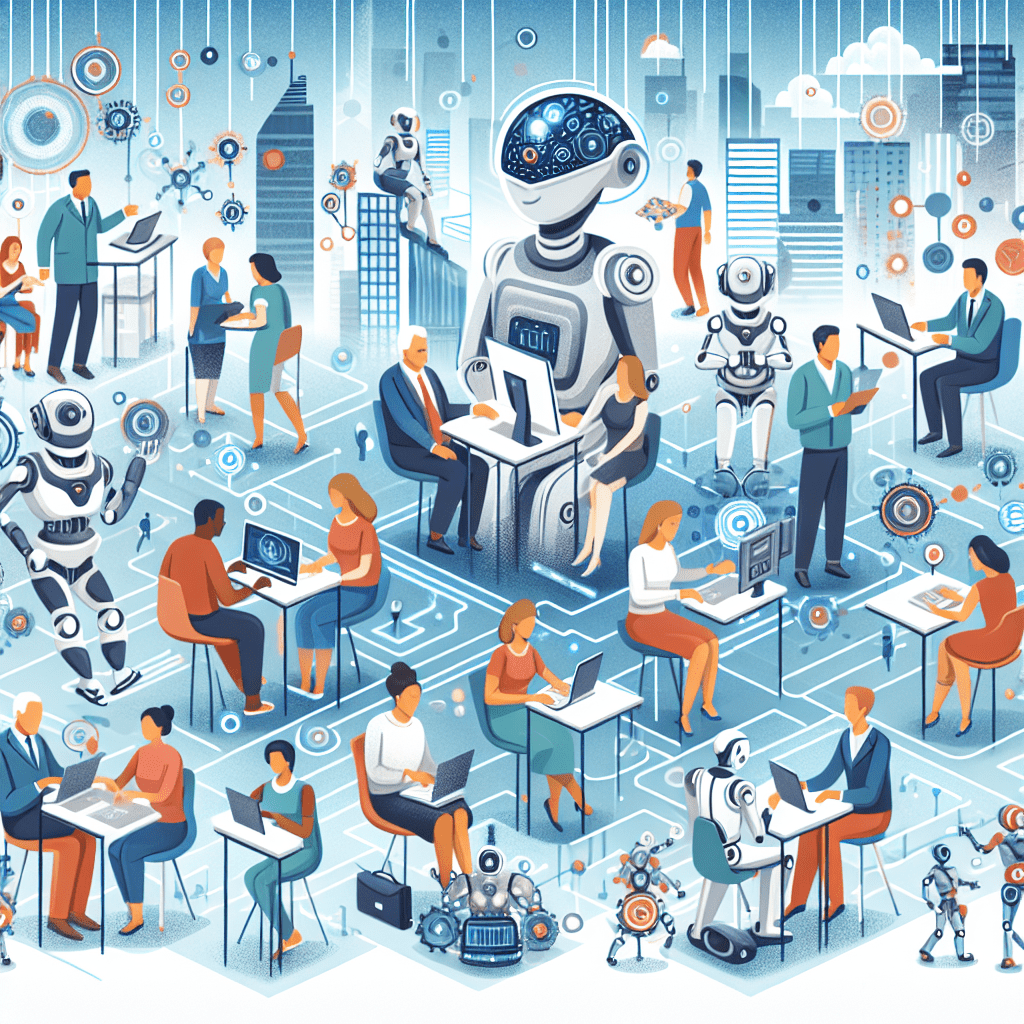Artificial Intelligence (AI) is revolutionizing the way we work and shaping the future of the job market. From automation and data analysis to machine learning and natural language processing, AI is being integrated into various industries, creating new opportunities and transforming how businesses operate. In this article, we will explore how AI is impacting the job market, the challenges and advantages it brings, and how individuals can prepare for the changes ahead.
How AI is Changing the Job Market
Artificial Intelligence is already reshaping the job market in significant ways. One of the most notable impacts is the automation of repetitive tasks, which allows employees to focus on higher-value, more strategic work. For example, AI-powered software can streamline administrative tasks, such as data entry and scheduling, freeing up time for employees to concentrate on decision-making and problem-solving.
Another way AI is changing the job market is by enhancing the recruitment process. AI algorithms can analyze resumes, conduct video interviews, and assess candidates’ skills and qualifications, making the hiring process more efficient and effective. This has led to the rise of AI-powered recruitment platforms that help companies identify the best candidates for their job openings.
AI is also revolutionizing industries such as healthcare, finance, and manufacturing. In healthcare, AI-powered tools are being used to diagnose diseases, personalize treatment plans, and improve patient outcomes. In finance, AI algorithms are analyzing market trends, detecting fraud, and automating investment decisions. In manufacturing, AI-powered robots are increasing productivity, reducing errors, and improving safety in factories.
The Advantages and Challenges of AI in the Job Market
While AI brings many advantages to the job market, such as increased efficiency, productivity, and innovation, it also poses challenges that need to be addressed. One of the main concerns is the potential displacement of jobs due to automation. As AI technology continues to advance, jobs that involve repetitive tasks or routine activities may be at risk of being replaced by machines.
Another challenge is the need for individuals to acquire new skills to stay competitive in the job market. As AI becomes more prevalent in various industries, workers will need to develop skills in areas such as data analysis, programming, and problem-solving to thrive in the digital economy. Continuous learning and upskilling will be essential for individuals to adapt to the changing job market.
How to Prepare for the Future of Work
To prepare for the future of work in the age of AI, individuals can take proactive steps to enhance their skills and knowledge. This may involve enrolling in online courses, attending workshops and seminars, or seeking mentorship from experts in the field. By staying informed about the latest developments in AI technology and acquiring relevant skills, individuals can position themselves for success in the evolving job market.
Networking and building connections with industry professionals can also be valuable in securing job opportunities in the AI-driven economy. By engaging with like-minded individuals and participating in industry events, individuals can expand their professional network and gain insight into emerging trends and opportunities in the job market.
Conclusion
Artificial Intelligence is reshaping the job market in profound ways, creating new opportunities and challenges for workers in various industries. By embracing AI technology, acquiring relevant skills, and adapting to the changing job market, individuals can position themselves for success in the digital economy. As AI continues to evolve and transform the way we work, it is essential for individuals to stay informed, upskill, and collaborate with others to thrive in the AI-driven future.
FAQs
Q: Will AI replace all jobs in the future?
A: While AI has the potential to automate many tasks and jobs, it is unlikely to replace all jobs. Certain roles that require human creativity, critical thinking, and emotional intelligence are less likely to be automated by AI.
Q: How can individuals prepare for AI in the job market?
A: Individuals can prepare for AI in the job market by acquiring skills in areas such as data analysis, programming, and problem-solving. Continuous learning, upskilling, and networking with industry professionals can also help individuals stay competitive in the AI-driven economy.
Quotes
“The future of work is being shaped by AI, and those who embrace this technology will thrive in the digital economy.” – John Smith, AI Expert
Write a short story about a young girl who discovers she has magical powers.


